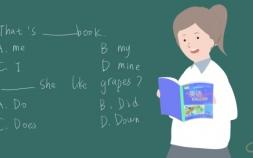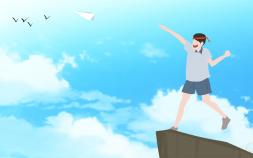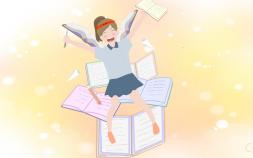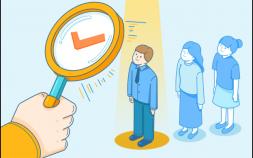英语专业四级真题(优秀4篇)
在平日的学习中,说到知识点,大家是不是都习惯性的重视?知识点有时候特指教科书上或考试的知识。相信很多人都在为知识点发愁,下面是小编辛苦为大家带来的英语专业四级真题(优秀4篇),如果能帮助到您,小编的一切努力都是值得的。

英语专业四级真题(优秀4篇) 篇一
Scratchy throats, stuffy noses and body aches all spell misery, but being able to tell if the cause is a cold orflu (流感)may make a difference in how long the misery lasts.
The American Lung Association (ALA) has issued new guidelines on combating colds and the flu, and one of the keys is being able to quickly tell the two apart. That‘s because the prescription drugs available for the flu need to be taken soon after the illness sets in. As for colds, the sooner a person starts taking over-the-counter remedy, the sooner relief will come.
The common cold and the flu are both caused by viruses. More than 200 viruses can cause cold symptoms, while the flu is caused by three viruses—flu A, B and C. There is no cure for either illness, but the flu can be prevented by the flu vaccine (疫苗), which is, for most people, the best way to fight the flu, according to the ALA.
But if the flu does strike, quick action can help. Although the flu and common cold have many similarities, there are some obvious signs to look for.
Cold symptoms such as stuffy nose, runny nose and scratchy throat typically develop gradually, and adults and teens often do not get a fever. On the other hand, fever is one of the characteristic features of the flu for all ages. And in general, flu symptoms including fever and chills, sore throat and body aches come on suddenly and are more severe than cold symptoms.
The ALA notes that it may be particularly difficult to tell when infants and preschool age children have the flu. It advises parents to call the doctor if their small children have flu-like symptoms.
Both cold and flu symptoms can be eased with over-the-counter medications as well. However, children and teens with a cold or flu should not take aspirin for pain relief because of the risk of Reye syndrome (综合症), a rare but serious condition of the liver and central nervous system.
There is, of course, no vaccine for the common cold. But frequent hand washing and avoiding close contact with people who have colds can reduce the likelihood of catching one.
11.According to the author, knowing the cause of the misery will help ________.
A) shorten the duration of the illness
B) the patient buy medicine over the counter
C) the patient obtain cheaper prescription drugs
D) prevent people from catching colds and the flu
12.We learn from the passage that ________.
A) one doesn‘t need to take any medicine if he has a cold or the flu
B) aspirin should not be included in over-the-counter medicines for the flu
C) delayed treatment of the flu will harm the liver and central nervous system
D) over-the-counter drugs can be taken to ease the misery caused by a cold or the flu
13.According to the passage, to combat the flu effectively, ________.
A) one should identify the virus which causes it
B) one should consult a doctor as soon as possible
C) one should take medicine upon catching the disease
D) one should remain alert when the disease is spreading
14.Which of the following symptoms will distinguish the flu from a cold?
A) A stuffy nose.
B) A high temperature.
C) A sore throat.
D) A dry cough
15.If children have flu-like symptoms, their parents ________.
A) are advised not to give them aspirin
B) should watch out for signs of Reye syndrome
C) are encouraged to take them to hospital for vaccination
D) should prevent them from mixing with people running a fever
英语专业四级真题(优秀4篇) 篇二
Directions: In this section, you are going to read a passage with ten statements attached to it. Each statement contains information given in one of the paragraphs. Identify the paragraph from which the information is derived. You may choose a paragraph more than once. Each paragraph is marked with a letter. Answer the questions by marking the corresponding letter on Answer Sheet 2.
Resilience Is About How You Recharge, Not How You Endure
[A] As constant travelers and parents of a 2-year-old, we sometimes fantasize about how much work we can do when one of us gets on a plane, undistracted by phones, friends, or movies. We race to get all our ground work done: packing, going through security, doing a last-minute work call, calling each other, then boarding the plane. Then, when we try to have that amazing work session in flight, we get nothing done. Even worse, after refreshing our email or reading the same studies over and over, we are too exhausted when we land to soldier on with (继续处理) the emails that have inevitably still piled up.
[B] Why should flying deplete us? We’re just sitting there doing nothing. Why can’t we be tougher, more resilient (有复原力的) and determined in our work so we can accomplish all of the goals we set for ourselves? Based on our current research, we have come to realize that the problem is not our hectic schedule or the plane travel itself; the problem comes from a misconception of what it means to be resilient, and the resulting impact of overworking.
[C] We often take a militaristic, “tough” approach to resilience and determination like a Marine pulling himself through the mud, a boxer going one more round, or a football player picking himself up off the ground for one more play. We believe that the longer we tough it out, the tougher we are, and therefore the more successful we will be. However, this entire conception is scientifically inaccurate.
[D] The very lack of a recovery period is dramatically holding back our collective ability to be resilient and successful. Research has found that there is a direct correlation between lack of recovery and increased incidence of health and safety problems. And lack of recovery—whether by disrupting sleep with thoughts of work or having continuous cognitive arousal by watching our phones—is costing our companies $62 billion a year in lost productivity.
[E] And just because work stops, it doesn’t mean we are recovering. We “stop” work sometimes at 5pm, but then we spend the night wrestling with solutions to work problems, talking about our work over dinner, and falling asleep thinking about how much work we’ll do tomorrow. In a study just released, researchers from Norway found that 7.8% of Norwegians have become workaholics(工作狂). The scientists cite a definition of “workaholism” as “being overly concerned about work, driven by an uncontrollable work motivation, and investing so much time and effort in work that it impairs other important life areas.”
[F] We believe that the number of people who fit that definition includes the majority of American workers, which prompted us to begin a study of workaholism in the U.S. Our study will use a large corporate dataset from a major medical company to examine how technology extends our working hours and thus interferes with necessary cognitive recovery, resulting in huge health care costs and turnover costs for employers.
[G] The misconception of resilience is often bred from an early age. Parents trying to teach their children resilience might celebrate a high school student staying up until 3am to finish a science fair project. What a distortion of resilience! A resilient child is a well-rested one. When an exhausted student goes to school, he risks hurting everyone on the road with his impaired driving; he doesn’t have the cognitive resources to do well on his English test; he has lower self-control with his friends; and at home, he is moody with his parents. Overwork and exhaustion are the opposite of resilience and the bad habits we acquire when we’re young only magnify when we hit the workforce.
[H] As Jim Loehr and Tony Schwartz have written, if you have too much time in the performance zone, you need more time in the recovery zone, otherwise you risk burnout. Gathering your resources to “try hard” requires burning energy in order to overcome your currently low arousal level. It also worsens exhaustion. Thus the more imbalanced we become due to overworking, the more value there is in activities that allow us to return to a state of balance. The value of a recovery period rises in proportion to the amount of work required of us.
[I] So how do we recover and build resilience? Most people assume that if you stop doing a task like answering emails or writing a paper, your brain will naturally recover, so that when you start again later in the day or the next morning, you’ll have your energy back. But surely everyone reading this has had times when you lie in bed for hours, unable to fall asleep because your brain is thinking about work. If you lie in bed for eight hours, you may have rested, but you can still feel exhausted the next day. That’s because rest and recovery are not the same thing.
[J] If you’re trying to build resilience at work, you need adequate internal and external recovery periods. As researchers Zijlstra, Cropley and Rydstedt write in their 2014 paper: “Internal recovery refers to the shorter periods of relaxation that take place within the frames of the work day or the work setting in the form of short scheduled or unscheduled breaks, by shifting attention or changing to other work tasks when the mental or physical resources required for the initial task are temporarily depleted or exhausted. External recovery refers to actions that take place outside of work—e.g. in the free time between the work days, and during weekends, holidays or vacations.” If after work you lie around on your bed and get irritated by political commentary on your phone or get stressed thinking about decisions about how to renovate your home, your brain has not received a break from high mental arousal states. Our brains need a rest as much as our bodies do.
[K] If you really want to build resilience, you can start by strategically stopping. Give yourself the resources to be tough by creating internal and external recovery periods. Amy Blankson describes how to strategically stop during the day by using technology to control overworking. She suggests downloading the Instant or Moment apps to see how many times you turn on your phone each day. You can also use apps like Offtime or Unplugged to create tech free zones by strategically scheduling automatic airplane modes. The average person turns on their phone 150 times every day. If every distraction took only 1 minute, that would account for 2.5 hours a day.
[L] In addition, you can take a cognitive break every 90 minutes to charge your batteries. Try to not have lunch at your desk, but instead spend time outside or with your friends—not talking about work. Take all of your paid time off, which not only gives you recovery periods, but raises your productivity and likelihood of promotion.
[M] As for us, we’ve started using our plane time as a work-free zone, and thus time to dip into the recovery phase. The results have been fantastic. We are usually tired already by the time we get on a plane, and the crowded space and unstable internet connection make work more challenging. Now, instead of swimming upstream, we relax, sleep, watch movies, or listen to music. And when we get off the plane, instead of being depleted, we feel recovered and ready to return to the performance zone.
36. It has been found that inadequate recovery often leads to poor health and accidents.
37. Mental relaxation is much needed, just as physical relaxation is.
38. Adequate rest not only helps one recover, but also increases one’s work efficiency.
39. The author always has a hectic time before taking a flight.
40. Recovery may not take place even if one seems to have stopped working.
41. It is advised that technology be used to prevent people from overworking.
42. Contrary to popular belief, rest does not equal recovery.
43. The author has come to see that his problem results from a misunderstanding of the meaning of resilience.
44. People’s distorted view about resilience may have developed from their upbringing.
45. People tend to think the more determined they are, the greater their success will be.
答案:
36.D
37. J
38. L
39. A
40. E
41. K
42. I
43.B
44. G
45. C
四级阅读理解答案:词汇理解
26. G)habitats
【语法判断】marine是形容词,表示“海洋的”,后面应该跟一个名词。符合条件的名词有experiences(经验)、exterior(外部)、habitats(栖息地)、investment(投资)、territory(领土)、victim(受害人)。
【语意判断】从上下文可知,暗礁是潜泳和保护海洋______的圣地,所以应该选habitats,海洋栖息地。
27. M)stripped
【语法判断】此处谓语不完整,要填写动词,由was可知要使用被动语态。符合条件的动词有depressed(使…沮丧)、stripped(剥夺、剥离)。
【语意判断】被沉下去的A300被______了所有有可能对环境有害的东西,所以应该选stripped,被剥离了。
28. A)create
【语法判断】此处是倒装句,the sunken plane will后面应该跟动词原形。符合条件的动词有create(创作、创造)、innovate(发明)。
【语意判断】被沉默的飞机不仅仅将会给人工暗礁的生长_____完美的骨架,所以应该选create,创造出。
29. L)stretches
【语法判断】主句缺少谓语,主语是the plane,应该选择动词的第三人称单数。符合条件的`动词有experiences(经历)、stretches(延展到)
【语意判断】这个飞机____总长度54米,所以应该选stretches,延展到。
30. C)eventually
【语法判断】where引导的从句有完整的主谓宾结构,空格处应该填写副词。符合条件的副词有eventually(最后,终于)、intentionally(故意地、有意地)。
【语意判断】在这个地方,潜水者将_______能够探索机舱和….,因为是在飞机沉下去以后,潜水者才能够进行探索,所以应该选eventually,最终
31. F)exterior
【语法判断】由plane’s可知此处为所有格,应该填一个名词。符合条件的名词有experiences(经验)、exterior(外部)、investment(投资)、territory(领土)、victim(受害人)。
【语意判断】潜水者最终可以探索机舱和飞机的_____,潜水者会探索飞机的内部和外部,所以应该选exterior,外部。
32. J)investment
【语法判断】由that代词可知,此处应该填写一个名词。符合条件的名词有experiences(经验)、investment(投资)、territory(领土)、victim(受害人)。
【语意判断】他们(投资者)希望通过旅游业看到在_____上的回报,又从前一句知道投资者在飞机上花了大量的金钱,所以应该选择investment,投资上的回报。
33. O)victim
【语法判断】由定冠词the和介词of可知,此处应该填写一个名词。符合条件的名词有experiences(经验)、territory(领土)、victim(受害者)。
【语意判断】土耳其这个国家是几起致命的恐怖袭击的______,由上文可知,土耳其的旅游业出现了下滑的趋势,他们受到了恐怖袭击的影响,所以应该选victim,受害者。
34. I)intentionally
【语法判断】sunk修饰aircraft表示被沉没的飞机,此处可以填写一个形容词和sunk并列修饰aircraft,也可以是一个副词修饰形容词sunk。符合条件的形容词有depressed(沮丧的)、revealing(透露真情的、有启迪作用的);符合条件的副词有intentionally(故意地、有意地)。
【语意判断】A300是的______被沉没的飞机,由上下文可知,这架飞机是被人为地沉没到海底地,所以此处应该选intentionally,故意被沉没的飞机。
35. E)exploring
【语法判断】and并联连词连接taking和填空部分,形式应与taking保持一致,动词的现在分词形式。符合条件的动词有exploring(探索)、revealing(揭露)。
【语意判断】经历一场水下旅行和_______沉没的A300内部,由语意可知,应该选择exploring,探索内部。
英语专业四级真题(优秀4篇) 篇三
Section A
26. [C] essential
27. [M] suspicion
28. [G] miserable
29. [A] constantly
30. [O] watching
31. [J] records
32. [K] removed
33. [F] load
34. [I] properly
35. [H] pressure
解析:
26题根据上下文得知,此处应该是说人与人之间信任的重要性。很明显答案C. essential符合条件,B选项有可信的意思,看到此选项可能下意识地会选这个答案,但翻译成“信任是可信的”,和主旨无关,此处还是讨论信任的重要性。
29题容易选一个名词比如records和”mistakes”并列,但是后面的选项并没有双引号,后面是一个动词reminding,可以推测前面需要填入副词来修饰reminding,根据语义“要求你做这做那”,可以推出是不断要求,而不是properly恰当地,排除完可以得出constantly.
31题,此处判断应填名词,有同学可能会和pressure弄混淆,但此处并不能得出公司要施加压力。公司出于自我保护和信任问题,对于任何交易记录都会留有根据和存根,这些都是记录,所以答案应该是records,
Section B
36. [G] The Chetty data shows that neighborhoods and places mattered for children born in the San Jose area of the 1980s.
37. [D] The reasons kids in San Jose performed so well might seem obvious.
38. [K] The idea that those at the bottom can rise to the top is central to America's ideas about itself.
39. [B] Indeed, data suggests that this is one of the best places to grow up poor in America.
40. [J] But in today's America-a land of rising inequality
41. [I] Leaders in San Jose are determined to make sure that the city regains its status as a place where even poor kids can access the resources to succeed.
42. [E] Indeed, the streets of San Jose seem, in some ways, to embody the best of America.
43. [C] By contrast, just 4.4 percent of poor kids in Charlotte moved up to the top
44. [H] Some San Jose residents say that as inequality has grown in recent years
45. [F] But researchers aren 't sure exactly why poor kids in San Jose did so well.
解析:
38题干主旨表达的是如果该市的问题不解决将会动摇美国的根本信仰,对应K项中的America's ideas about itself.和foundational belief.可以进行匹配。
41题干第一句该市的官员,可以定位到[I]选项第一句Leaders in San Jose, 且 该句直接表明了目的,就是为了提升贫困孩子触达成功的机会。
42题中的manifest词汇较为生僻,但后面的some of the best features可以理解说的是关于美国最好的几点特质,对应到[E]选项to embody the best of America.
44 题干关键信息是 increases in housing prices,快速浏览后可以定位到[H]项多次提到如Rent,homelessness problem, housing prices等与住房相关的信息
Section C
Passage One
46. [D] They lack the necessary resources to address pupils’ mental problems.
47. [A] They have deteriorated due to budget cuts.
48. [B] At school.
49. [C] Students are more comfortable seeking counselling in school.
50. [D] A change in the conception of what schools are.
解析:
46题A和B选项属于无中生有,C选项说的是学校在实施干预方面举措不利,但是根据原文第二段第二句,how ill-equipped they feel 可以看出主体是老师自己而不是学校,此处是一个偷换概念的陷阱,还是要基于文章的意思判断。
47题的C选项与原文第三段最后一句意义相反;B和D选项也是无中生有,A选项中出现了一个生词,但最后出现的budgets cuts还是可以帮助我们定位到第三段第二句。
49. A和B均属无中生有,D选项则偷换了概念,原文是指学生们更愿意在校内进行心理辅导而不是外面的心理咨询,D选项则替换成了校外活动。
Passage Two
51. [A] To illustrate people’s peculiar shopping behavior.
52. [D] To make customers believe they are getting a bargain.
53. [B] The E conomist’s promotional strategy works.
54. [C] To trap customers into buying the more pricey item.
55. [B] By comparing it with other choices.
解析:
51题的BD选项都属于捏造的'信息,C选项具有一定迷惑性,但描述的是表面的信息,并不是作者举例的真实目的,此处挑选饮料本质是想要阐述一种特定购物行为。
52题讨论的是中罐苏打水定价的理由,A选项吸引更多人去买很明显不对,因为中罐苏打水重量减半价格却很贵,同理B项也不符合,C项本文并未提及,属于生造的信息。所以中罐苏打是为了让顾客以同样价格买到更大罐的饮料从而觉得占到便宜。
53 题A选项看似符合常理,但并不是Dan的研究成果内容,属于张冠李戴;C项文中并没有提及是卖的最好的; 最后的D项也偷换了概念,很有迷惑性,研究结果的意思是如果没有纸质加电子版这个选项的话,大部分人还是会选择更便宜的电子版,但和纸质版对比,同样的价格还可以获得电子版,所以人们会更倾向选择print plus digital,而不是digital。
英语专业四级真题(优秀4篇) 篇四
B. Who do you think the visiting professor is?
C. How much do you think he earns every month?
D. How quickly would you say he would come?
59. The additional work will take _____ weeks.
A. the other B. another two C. other two D. the more
60. Which of the following italicized parts is a subject clause (主语从句)?
A. We are quite certain that we will get there in time.
B. He has to face the fact that there will be no pay rise this year.
C. She said that she had seen the man earlier that morning.
D. It is sheer luck that the miners are still alive after ten days.
61. Its getting late. Id rather you _____ now.
A. left B. leave C. are leaving D. will leave
62. In the sentence "The manager interviewed Jim himself in the morning", the italicized word is used to modify _____.
A. the object B. the verb C. the subject D. the prepositional phrase
63. There is no doubt _____ the couple did the right thing in coming back home earlier than planned.
A. whether B. that C. why D. when
64. The sentence that expresses OFFER is _____.
A. Ill get some drinks. Whatll you have? B. Does she need to book a ticket now?
C. May I know your name? D. Can you return the book next week?
65. Which of the following italicized phrases indicates a subject-predicate relation (主谓关系)?
A. Mr. Smiths passport has been issued.
B. The visitors arrival was reported in the news.
C. Johns travel details have not been finalized.
D. The new bookstore sells childrens stories.
66. Our office has recently _____ to a new computer system.
A. altered B. converted C. transformed D. modified
67. The crowd went _____ as soon as the singer stepped onto the stage.
A. wild B. emotional C. uncontrolled D. unrestricted
68. Our school library is _____ closed for repairs.
A. Shortly B. quickly C. temporarily D. rapidly
69. John is up to his eves in work at the moment. The underlined part means _____.
A. very excited B. very busy C. very tired D. very efficient
70. Victoria bumped into her brother quite by chance in the supermarket. The underlined word means _____.
A. risk B. opportunity C. possibility D. luck
71. "Look at those pretty girls skirts" is _____, because it is not clear whether the girls or the skirts are "pretty".
A. ambiguous B. hidden C. indirect D. indistinct
72. House repairs, holidays, school fees and other _____ have reduced his bank balance to almost nothing.
A. amount B. payment C. expenses D. figures
73. It was really _____ of you to remember my birthday.
A. grateful B. thoughtful C. considerable D. generous
74. You can go to a travel agency and ask for a holiday _____.
A. introduction B. advertisement C. book D. brochure
75. The city government is building more roads to _____.
A. accommodate B. receive C. accept D. hold
76. Theyve lifted a two-year-long economic _____ on the country.
A. enclosure B. restriction C. blockade D. prohibition
77. Everyone is surprised that she has fallen out with her boy friend. The underlined part means _____.
A. left B. quarreled C. attacked D. defeated
78. His plan is carefully prepared and full of details, so it is a very _____ one.
A. elaborate B. refined C. ambitious D. complex
79. The girls voice was so low that we could ______ hear her.
A. seldom B. almost C. only D. barely
80. She must have been pretty _____ to fall for such an old trick.
A. interested B. gullible C. enthusiastic D. shrewd
PART V READING COMPREHENSION [25 MIN]
In this section there are four passages followed by questions or unfinished statements, each with four suggested answers marked A, B, C and D. Choose the one that you think is the best answer.
Mark your answers on Answer Sheet Two.
TEXT A
We have a crisis on our hands. You mean global warming? The world economy? No, the decline of reading. People are just not doing it anymore, especially the young. Whos responsible? Actually, its more like, What is responsible? The Internet, of course, and everything that comes with it – Facebook, Twitter (微博). You can write your own list.
Theres been a warning about the imminent death of literate civilization for a long time. In the 20th century, first it was the movies, then radio, then television that seemed to spell doom for the written world. None did. Reading survived; in fact it not only survived, it has flourished. The world is more literate than ever before – there are more and more readers, and more and more books.
上一篇:英语观课报告范文(最新9篇)
下一篇:英语教师年度工作总结(精选4篇)
相关问答
-
2024江西高考各科目考试时间安排

2024江西高考时间为2024年6月7、8、9日。江西高考科目包括统考语文、数学、外语,历史、物理2门首选科目中选择1门,再从思想政治、地
阅读更多 -
陕西2024高考各科目考试时间安排

2024陕西高考时间为6月7日至6月8日,共计2天。实行的还是老高考模式,包含了语文、数学、外语、理综和文综科目,满分是750分。下面小编
阅读更多 -
2024年5月全国计算机等级考试科目

许多小伙伴想要报考全国计算机等级考试,那么计算机考试需要考什么内容呢?一起来看看吧,以下是小编准备的一些2024年5月全国计算机等
阅读更多 -
浙江省2024高考时间是什么时候

浙江省2024高考将于6月7日至10日举行。普通类考试科目为3门必考科目和3门选考科目。艺术类、体育类考生除文化科目外,还须分别参加
阅读更多 -
四川高考各科目考试时间安排

2024四川高考时间一共2天,2024年6月7、8日。各省(区、市)考试科目名称与全国统考科目名称相同的必须与全国高考时间安排一致。下面
阅读更多 -
2024山西高考各科目考试时间安排

2024年山西高考考试时间:2024年山西高考的时间分别是6月7日-6月8日,考试科目包含了语文、数学、文综/理综和外语几门科目,总分是750
阅读更多
最新问答
-

2024江西高考各科目考试时间安排
2024-04-28 -

陕西2024高考各科目考试时间安排
2024-04-28 -

2024年5月全国计算机等级考试科目
2024-04-28 -

浙江省2024高考时间是什么时候
2024-04-28 -

四川高考各科目考试时间安排
2024-04-28 -

2024山西高考各科目考试时间安排
2024-04-28 -

2024安徽高考各科目考试时间安排
2024-04-28 -

2024年5月全国计算机等级考试时间
2024-04-28 -

关于二年级小学生数学训练题
2024-04-28 -

2024税务师职业资格考试时间是多少
2024-04-28
